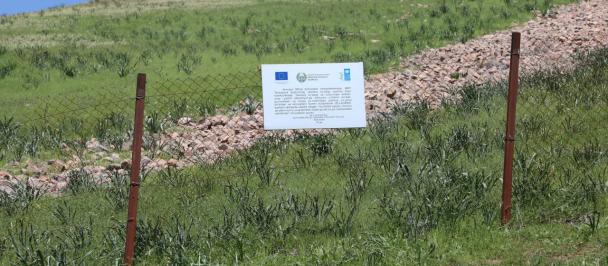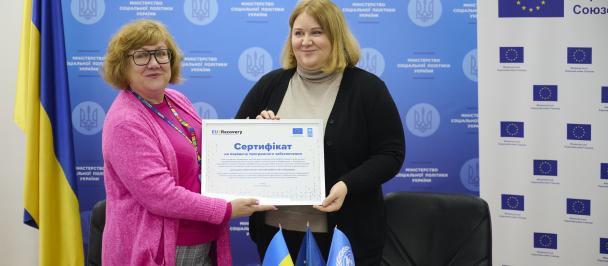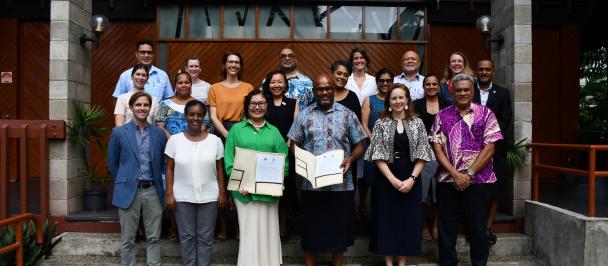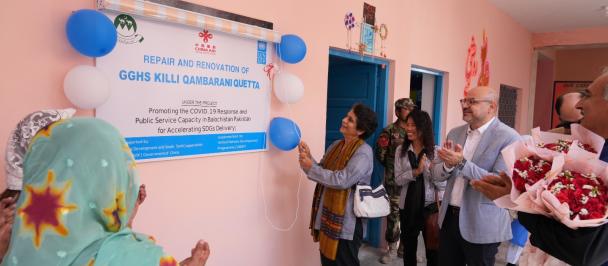North-East Nigeria, learns from Hiroshima, Japan
Local ownership and leadership key to successful recovery of communities.
August 24, 2022
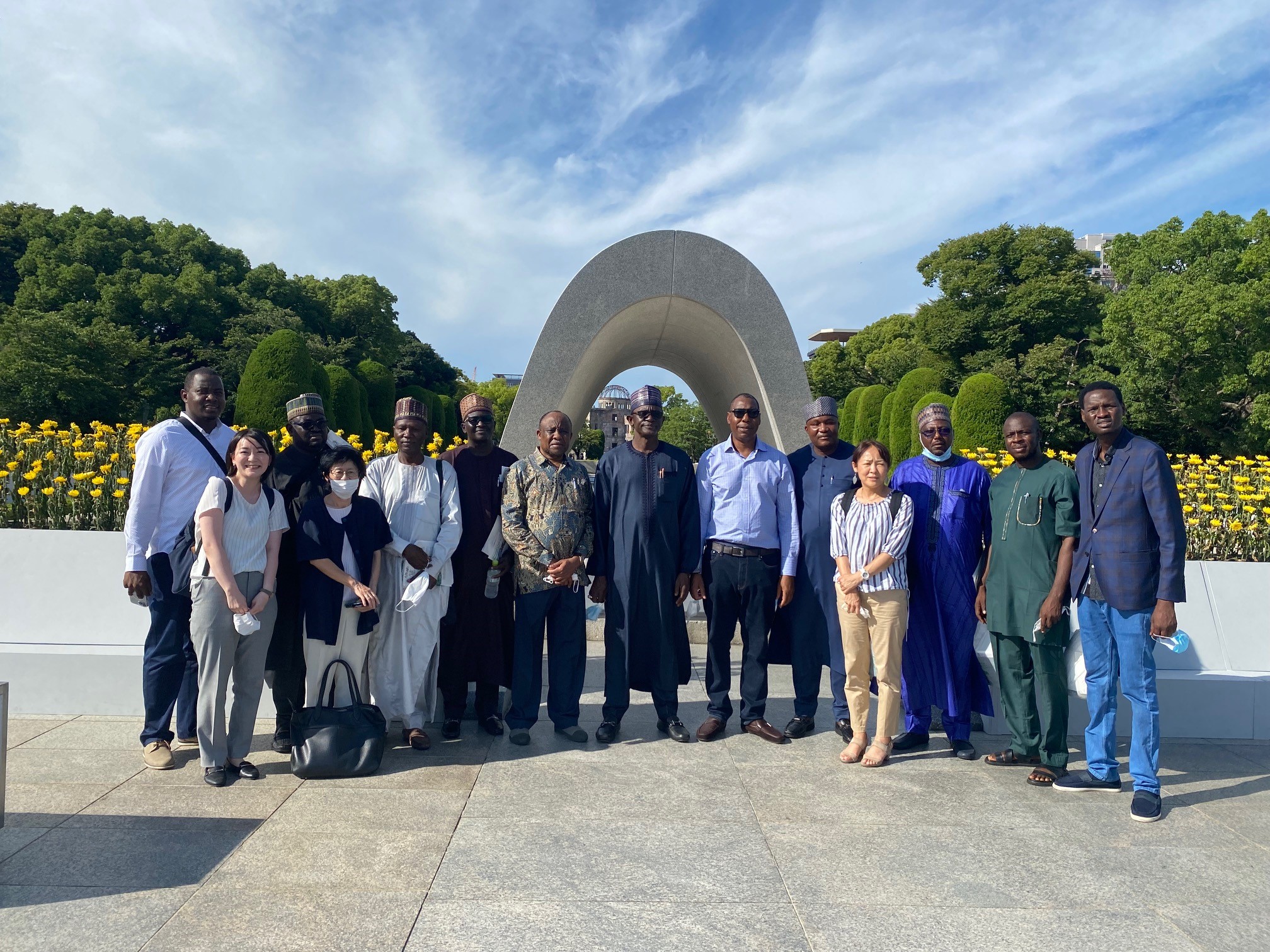
Officials of State Governments and Federal Governments of Nigeria, together with experts of JICA, in front of a monument in Hiroshima Peace Memorial Park in Japan
In August 2022, UNDP and Japan International Cooperation Agency (JICA) jointly facilitated a learning mission for State Governments officials from North-East Nigeria to Japan. The mission members were composed of His Excellency Professor Babagana Umara Zulum, Governor of Borno State, His Excellency Mai Mala Buni, Governor of Yobe State, Mr. Ahidjo Peter Robert, State Coordinator of Development Partners Projects of Adamawa State, Mr. Mohammed Goni Alkali, Managing Director of Northeast Development Commission (NEDC), and eight other officials.
The twelve officials visited several sites in Tokyo and Hiroshima and engaged in experience-sharing activities with the host country. The officials also visited the memorial monument in Hiroshima Peace Memorial Park in the city of Hiroshima, located at the site of the atomic bomb explosion during World War II. The visiting officials from northeast Nigeria were impressed by the information and reflected upon the exemplary recovery of Hiroshima after the indescribable damage and how they could apply a similar strategy and lessons back home.
During their one-week mission to Japan, the officials from Borno, Adamawa and Yobe states received lectures about Japan's recovery experience, paid courtesy calls to members of the national parliament of Japan, and monitored sites related to recovery. The lectures, meetings, and monitoring were arranged by JICA, which has long experience in training Government officials from various countries in Japan.
At the end of the mission, the officials expressed deep appreciation for the support and exposure to Japan's recovery journey, stating that they had learned valuable lessons from Japan's experience despite the difference in context between the recovery of Japan and that of Nigeria.
"There were lots to learn from the experience of the recovery process of Hiroshima. The planning of the city of Hiroshima after the war was especially impressive. I was also impressed by how the government was able to recover basic services such as the provision of water only some days after the attack by the atomic bomb. Rapid recovery from the impact of conflict is fundamentally what the people in North-East Nigeria want. We want to bring the lessons back to Nigeria." said His Excellency Professor Babagana Umara Zulum, Borno State Governor, reflecting on their mission.
Highlights of their engagements during the mission included appreciation of the need for local ownership and leadership in the recovery process, the importance of local participation in the provision of local government services and the need to develop and implement medium-term and long-term strategies for recovery. The officials each shared their experiences from their states - this vital information will be essential input towards formulating appropriate recovery policies and strategies in the future.
The military conflict in North-East Nigeria has adversely affected communities, with about 2.2 million people still living as internally displaced persons (IDPs). To support stabilization and early recovery efforts, UNDP is implementing interventions in partnership with the Government of Japan and other development partners, including the European Union, the governments of Switzerland, Germany, and Norway, among others.
About the programme:
UNDP prioritizes four critical areas in northeast Nigeria. These include re-establishment of livelihoods of the affected people, recovery of access to essential services, strengthening local governance, and re-establishing social cohesion and security. UNDP is the lead agency providing early recovery and livelihood support in North-East.

 Locations
Locations